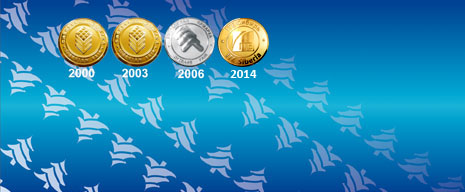 |
 |
No. 1 (2024)
Digital Environment as a Means of Dialogue in Education
The problem and the goal. The article focuses on the development of intellectual and mathematical abilities of schoolchildren that function within the digital educational environment. Two sides of the abilities being formed are highlighted: cognitive and emotional-value ones developed due to the dialogical format of discussing the search for solutions to complex mathematical problems. The purpose of the study is to present ways to motivate schoolchildren to solve complex mathematical problems using a dialogical learning format.
«History of Siberia» Discipline: Preparing Students for the Implementation of the Regional Component in the Education of Schoolchildren
The article presents the experience of teaching the discipline «History of Siberia» in the process of training future history teachers. The main emphasis is on showing the possibilities of teaching a large amount of information in a small number of hours provided for by the curriculum, which determined the purpose of this paper. The article summarizes the experience of many years of teaching the history of Siberia at different faculties.
Irkutsk Private Women’s School of N. V. Sukachev: Education in Siberia in the Late 19th–Early 20th Centuries
The article contains information about the history of functioning of the «free school for girls», which was opened in the late 19th century by the philanthropist, teacher, wife of Irkutsk public figure Nadezhda Vladimirovna Sukacheva in Irkutsk on her own funds and was maintained by her for 34 years. The data concerning the organisation of the educational process are covered, and biographical information about some representatives of the teaching staff is presented. The topic is addressed due to the low degree of study.
How the Realism of Aristotle’s Philosophy Correlates With His Educational Concepts: Philosophical and Pedagogical
The article analyzes the features of the philosophy of education of the outstanding ancient Greek philosopher and teacher Aristotle developed by the 4th century BC. Its knowledge is important — firstly, to understand how the formation of philosophical and pedagogical thought took place in Ancient Greece; secondly, to find out which educational concepts the philosopher Aristotle borrowed from his teacher Plato, and which ones he introduced into pedagogy himself.
Сайт поддерживается в Новосибирском институте повышения квалификации и переподготовки работников образования и является участником Новосибирской открытой образовательной сети